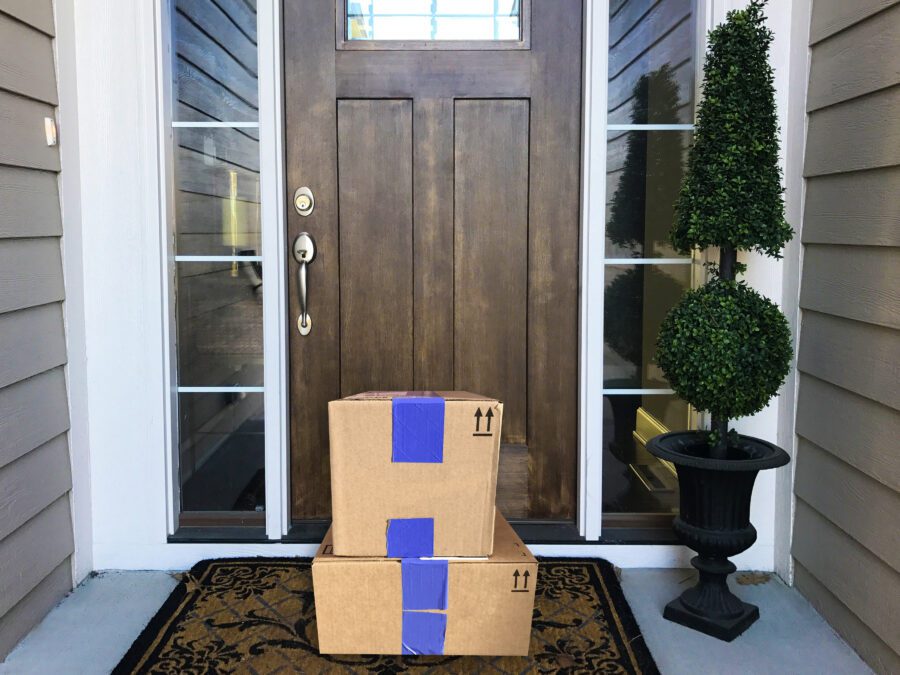
Our Blog
How Universities Can Stand Out in a Competitive Market: The Role of Campus Convenience
Written by: Parcel Pending
5 Min Read
Published: July 11, 2025
Higher education applications in the UK reached a new record in 2025, with over 600,000 students applying for a university or college place by the January deadline.1 But while demand is growing, so too is competition. And with more students applying to university than ever before, institutions must now go beyond academic reputation to differentiate themselves.
Today, student experience is at the heart of that effort. Young people increasingly select universities based on how well campus life fits into their lifestyle, not just on academic rankings. Convenience – whether through flexible study spaces, intuitive digital systems or efficient campus services – is becoming an essential part of that experience. And as institutions begin to plan for the new academic year, understanding what convenience really means to Gen Z could be the deciding factor in standing out from the crowd.
What Gen Z Really Expects from Campus Life
Students entering university today – largely part of Gen Z, who make up 63% of the UK’s 2.8 million students2 – have grown up with seamless digital experiences. From booking travel to managing finances, they’re used to doing everything online, whenever it suits them. As a result, they expect the same flexibility, speed and control when it comes to managing their lives on campus.
That expectation spans every part of the student journey. From course registration and accessing support services to booking study spaces or collecting deliveries, students value tools that save time and give them more control over how and when they complete everyday tasks. What was once a nice-to-have has now become the standard.
These expectations are shaped not just by Gen Z’s digital upbringing, but also by their broader consumer behaviour. According to McKinsey, Gen Z’s purchasing power is projected to surpass that of baby boomers globally by 2029, and by 2035 they’re expected to contribute an additional $8.9 trillion to the global economy.3 But while their financial influence is growing, Gen Z consumers are also more intentional than previous generations. They tend to take longer to make purchasing decisions and are drawn to brands and services that offer ease, transparency, and a sense of control.4
They favour mobile-first experiences and expect flexible, digital options as standard.5 This is a generation that embraces click-and-collect, same-day delivery, and real-time digital services – and increasingly expects the same convenience from their university. When systems feel unnecessarily complex or outdated, it can affect students’ sense of confidence and autonomy in navigating campus life.
How Everyday Support Shapes the Student Experience
Convenience isn’t just about comfort; it plays a vital role in student wellbeing and academic success. When key services are difficult to access or only available at limited times, it adds unnecessary pressure – especially for those balancing part-time jobs, coursework, and personal commitments. This is increasingly common, with recent data from the Higher Education Policy Institute (HEPI) revealing that 68% of students now work alongside their studies, with many clocking up to 48 hours per week across academic and job commitments.6
In this context, the availability of timely, practical support can make a real difference. HEPI’s 2024 Student Academic Experience Survey notes that easy, convenient access to study spaces and resources – both physical and digital – can directly influence student outcomes and significantly shape how students experience university life.7 As hybrid learning becomes more standard across institutions, the quality and ease of access to online platforms and tools is playing an increasingly important role in how supported they feel day to day.
When everyday services are simple and accessible, they help students manage competing demands more confidently, creating a more positive academic experience overall.
Small Changes, Big Impact
Creating a more convenient campus experience doesn’t have to mean major investment. Some of the most effective changes are also the simplest: extending library hours, offering mobile-friendly access to key services, or rethinking how students collect deliveries. These small improvements don’t just streamline processes; they give students more flexibility and control over how they manage life on campus.
Crucially, these changes don’t just benefit students. They also help universities run more efficiently by reducing staff workload, improving service uptake, and enabling better use of campus space.
As universities continue to navigate tight budgets and rising expectations, this dual benefit – enhancing the student experience while supporting operational goals – becomes increasingly important.
The Role of Smart Lockers in Campus Convenience
One area where universities are already seeing these benefits is parcel management. With the continued growth of online shopping among Gen Z, campuses are handling more parcel deliveries than ever – and traditional post rooms are struggling to keep up. Smart parcel lockers offer a practical solution.
Installed in central locations across university campuses, lockers allow students to collect, return, or send parcels at any time, without queuing in post rooms or relying on staffed hours. For institutions, they reduce pressure on staff, increase delivery security, and offer a modern service that aligns with students’ expectations for convenience.
They’re also versatile enough to support a range of other use cases – including the campus-wide distribution and return of documents, IT equipment, library books, move-in materials, and more – making them a smart investment in long-term campus operations.
The University of Northampton discovered these benefits very quickly. Michelle Chodyniecki, Head of Facilities Services at the university, commented: “With the parcel lockers, we’ve been able to resolve the issues we had previously with students collecting their parcel deliveries. Now, we put the parcels in the lockers, and it’s done. It’s improved the service for students because they can collect their parcels 24/7. For staff, it’s given us a better process for managing parcel deliveries.”
In a competitive market, it’s no longer just about who offers the best courses, but who offers the best experience. Universities that take the time to understand and respond to Gen Z’s expectations for ease, speed, and autonomy will be better placed to attract, support, and retain students for years to come.
Ready to help your students thrive in the new academic year? Speak with a Parcel Pending representative today to find out how we can help you lock in your package management solution ahead of the new academic year.
Sources
1. UCAS. UCAS releases undergraduate January equal consideration applicant data for 2025. www.ucas.com. February 13, 2025.
2. Native. Gen Z students – the Gen Z market segment you’re sleeping on. www.partner.native.fm. n.d.
3. McKinsey & Company. State of the Consumer 2025: When disruption becomes permanent. www.mckinsey.com. June 9, 2025.
4. BBC. The picky buying habits of Gen Z consumers. www.bbc.co.uk. December 20, 2023.
5. Voyado. How is Generation Z shopping? www.voyado.com. n.d.
6. HEPI. Student Academic Experience Survey 2025. www.hepi.ac.uk. June 12, 2025.
7. HEPI. Student Academic Experience Survey 2024. www.hepi.ac.uk. June 13, 2024.



